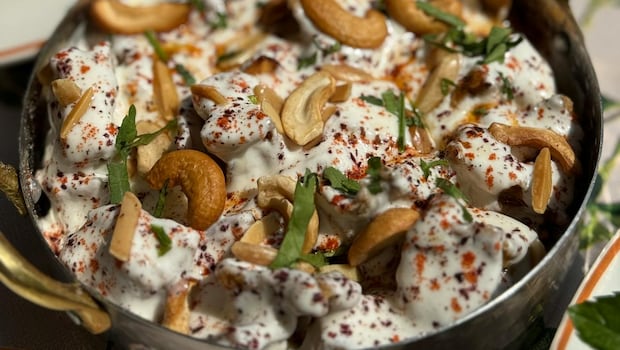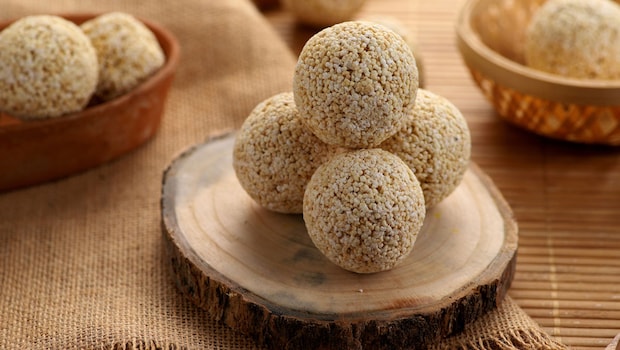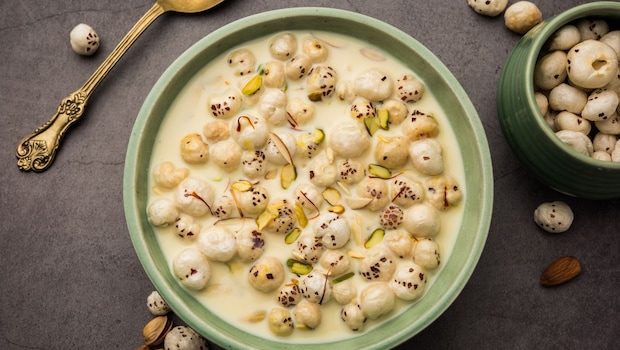Navratri is a festival that brings colour, devotion, and celebration into homes across India. From dandiya nights to prayers dedicated to Goddess Durga, it is also a time of fasting and mindful eating. During these nine days, people give up grains, pulses, onions, garlic, and non-vegetarian foods. Many who are not fasting also avoid eggs and meat out of tradition.
But for those who usually rely on eggs to meet daily protein needs, this sudden shift can feel restrictive. How do you keep your diet balanced without compromising on festive practices? Nutrition experts Dr Yashawant Kumar, Founder and CEO of Benefic Nutrition, and Shruti Naidu, Senior Dietitian, spoke to NDTV Food about how simple food swaps and smart planning can help.
Why Maintaining Protein Intake Is Essential During Navratri
Dr Yashawant Kumar explains, "During the Navratri period, people end up consuming food low in protein but with a diet rich in carbohydrates and fats. Potentially, this could lead to muscle loss, fatigue, and constant hunger pangs. The key is to incorporate plant-based and dairy-based proteins that are permitted within your fasting rules."
To keep energy levels steady, it is important to add protein-rich foods to every meal. With that in mind, here are seven vegetarian foods and combinations nutritionists recommend during Navratri.
7 Vegetarian, Protein-Rich Foods To Eat During Navratri
1. Dairy Products

Photo Credit: Pexels
Dairy is one of the most dependable sources of protein during fasting. According to Dr Yashawant, "Milk, paneer, curd, and cottage cheese are excellent sources of high-quality protein. In a bowl of curd, add fruits and nuts or prepare a stir-fry made with paneer and vrat-friendly vegetables for a protein-rich meal."
Shruti Naidu agrees, adding, "Paneer and hung curd can be included in various recipes to boost protein intake while supporting gut health."
2. Nuts And Seeds
For crunch and variety, both experts recommend nuts and seeds. Dr Yashawant says, "Almonds, cashews, walnuts, and peanuts provide a solid protein and healthy fat boost. A great addition to this is samak ke chawal or barnyard millet. When combined with dairy or nuts, it provides a complete protein profile."
Shruti Naidu adds, "Nuts and seeds are another excellent option. Almonds, walnuts, chia seeds, and pumpkin seeds not only provide protein but are also packed with healthy fats, vitamins, and minerals to keep your energy levels stable during fasting."
3. Rajgira (Amaranth)

Photo Credit: iStock
Both nutritionists highlight rajgira, also known as amaranth, as a fasting favourite. Dr Yashawant calls it "a fasting superstar," explaining, "It's a complete protein, meaning it contains all nine essential amino acids."
Shruti Naidu notes, "Don't miss rajgira (amaranth), which can be used to make laddoos or rotis. It is protein-rich and also offers calcium and iron, making it a powerhouse grain for fasting meals."
4. Makhana And Milk

Photo Credit: Canva
A simple and nourishing addition to the Navratri diet is makhana with milk. Shruti Naidu explains that makhana, or fox nuts, are light yet protein-rich, and when paired with milk, they make a wholesome snack that also provides calcium.
5. Soy Products
For those who do not follow strict fasting rules, soy products can be a valuable addition. Soy chunks, tofu, and soy milk are all complete protein sources, offering a reliable plant-based alternative to animal proteins.
Also Read:Navratri 2025: 6 Refreshing Drinks To Keep Your Energy High While Fasting
6. Peanut And Jaggery
A traditional, nutrient-packed choice is the combination of peanut and jaggery. It is not only a satisfying sweet snack but also provides protein, iron, and healthy fats - making it both energising and festive.
7. Bonus: Post-Workout Navratri-Friendly Protein Shake
For those who continue workouts during Navratri, protein intake becomes even more critical. Dr Yashawant recommends a shake made with milk, curd or yoghurt, and banana, plus a spoonful of peanut butter. It works as a wholesome post-workout recovery drink that fits well within fasting rules.
Also Read:What Happens When You Eat Paneer Every Day For A Week? Experts Answer
Smart Meal Planning Tips To Keep You Energised
Beyond individual foods, nutritionists suggest mindful combinations to make every meal count. Dr Yashawant advises, "Instead of just having aloo ki sabzi, add a cup of dahi or a handful of overnight soaked nuts to your food. This will add to the nutritional value of your Navratri, keeping you energetic and making you feel less hungry."
Shruti Naidu recommends experimenting with fasting-friendly flours. "For grains, fasting flours like buckwheat flour (kuttu ka atta) are versatile and can be used to prepare cheelas or rotis. Similarly, barnyard millet (samak rice) is a light, gluten-free substitute that works well for pulao or khichdi."
With dairy, nuts, seeds, rajgira, and creative combinations like peanut and jaggery, Navratri does not have to mean a dip in protein intake. A little planning ensures you celebrate the festival with energy while staying aligned with tradition.











